 Tongue-tie, Lip Tie & Structure Online Course(s) & Continuing Education
Tongue-tie, Lip Tie & Structure Online Course(s) & Continuing Education
Access the latest clinical skills and research for Tongue-tie, Lip Tie & Structure for Lactation & Breastfeeding professional training. These Tongue-tie, Lip Tie & Structure online courses provide practice-changing skills and valuable perspectives from leading global experts. This Tongue-tie, Lip Tie & Structure education has been accredited for a variety of CEUs / CERPs and can be accessed on-demand, at your own pace.
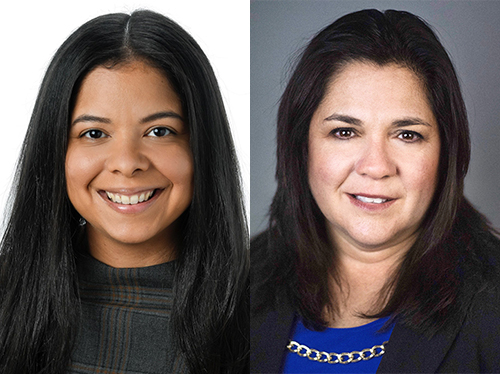
The Untethered Method Integrated: Team Approach to Assessment and Oral Habilitation

Shana Quarrie is an Occupational Therapist for over 12 years and a Certified Lactation Counselor for 5 years and now an IBCLC as of June 2023. She has worked in the pediatric setting for over a decade and in one of the largest Level 4 NICUs in the United States. Shana is one of the Co-Founders of Baby B.L.I.S.S. Feeding Collaborative of Central Florida a private practice formed with two RN, IBCLC’s. They help families prenatally, antepartum and postpartum navigate growth development and feeding journey.
Shana specializes in the medically complex infant such as 23 week preemies, brachial plexus injuries and any neurodevelopmental delays. Shana finds great improvement when combining neurodevelopmental techniques into her practice for optimal feeding and development outcomes. Her mantra is to help families thrive not just in her clinic during their sessions but in their natural environment.
Annette Leary is a registered nurse with over 35 years of experience working in Maternal Child Health (pediatrics, postpartum, home health care and level 2 NICU). She became an IBCLC in 1995. Annette owns a private practice providing home, office, and virtual visits: Orlando Lactation and Wellness Services. She formed a collaboration company Baby B.L.I.S.S. Central Florida Feeding Collaborative, with an occupational therapist and IBCLC. They help families prenatally, antepartum and post partum navigate the growth, development and feeding journey of their children.
Annette began her Upledger Craniosacral therapy training in 2015, taking advanced maternal and pediatric specialty classes. She finds great improvement incorporating craniosacral therapy techniques with lactation consulting. Helping Families Latch onto Parenting has always been Annette's mantra.
Parents are seeking answers to their baby’s feeding difficulties. They verbalize that they are confused by conflicting and contradicting information. They seek opinions from the internet, social media, friends and health care providers that further frustrate them. These families often have to self-navigate this feeding and oral health journey for their baby. They are seeking a functional assessment of the baby’s ability to organize the baby’s suck, swallow and breath pattern to get a differential analysis. Finding providers who can administer the assessment and provide lactation support to the feeding difficulties often means multiple appointments, different offices, and prolonged time. Collaborative practice models place a focus on co-evaluations, co-treatments and care plans to provide the parents with a comprehensive guide of solutions and tools. This allows them to facilitate their baby’s oral motor habilitation and improve their feeding abilities in a timely manner within a single location. These complete assessments, therapeutic modalities and care plans help families feel empowered to make the best decisions on whether to proceed with a frenotomy or not. This program will include 2 case reviews of a family who chose to do the frenotomy and one who did not and how the pre and post frenotomy support care assisted these decisions.
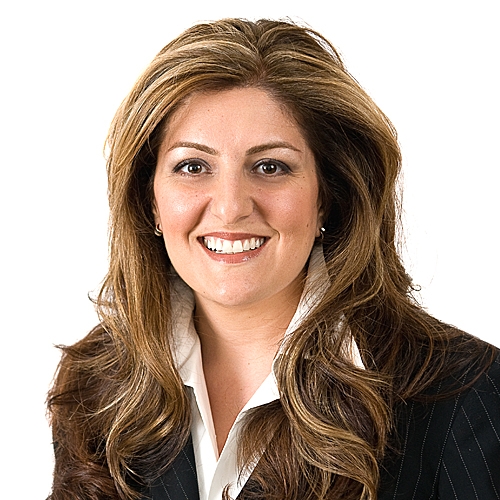
Tongue Tie and Orofacial Myofunctional Development

Dr Marjan Jones, a dental surgeon in Brisbane Australia pioneered a multi-disciplinary approach to the treatment of oral restrictions in Australia. With over 20 years’ experience with dental lasers and extensive knowledge of the comprehensive treatment of oral restrictions, her practice treats patients of all ages, offering a team-based approach to surgery incorporating in-house myofunctional therapy and orthodontics for treatment for children and adults. For infant patients, she collaborates with IBCLCs and cranial therapists for a comprehensive approach toward functional outcomes. She co-founded the Tongue Tie Institute designed to advance the education of health professionals in the treatment of oral restrictions. She now lectures to practitioners from Australia and around the world who have been introduced to a team approach to the management of oral restrictions. She has personal experience with the effect of tongue ties and their effect on herself and family (including breastfeeding challenges) and is determined to help others avoid or overcome their impact. She is a Fellow of the World Clinical Laser Institute, a member of the Academy of Laser Dentistry, the Academy of Breastfeeding Medicine and was the immediate past Chairperson of the Interim Board of the International Consortium of Ankylofrenula Professionals (ICAP). He passion for breastfeeding has resulted in studies toward IBCLC certification.
Michelangelo at work - Tongue Tie and Orofacial Myofunctional Development
Our oral and facial muscles are the master sculptors of our jaws and face. Research and clinical findings show that changing resting oral posture and functional habits of our oral and facial muscles not only influence structure but also affect function. The important functions of the orofacial region include breathing, eating/drinking (including breastfeeding) and speaking.
Breastfeeding is the premier and pivotal determinant of orofacial myofunctional habits. Beyond the many risks of not breastfeeding, malocclusion (poorly positioned jaws and teeth) is a very significant risk.
As such it is important that all health practitioners working with neonates rally to educate, accompany and support breastfeeding dyads toward functional and breastfeeding for as long as possible.
The tongue’s ability to move (particularly to elevate) affects breastfeeding biomechanics. As such, a tethered tongue’s range of motion and span of influence is a deviation from the physiologic norm. Teaching a dyad to compensate or simply manage through sub-optimal breastfeeding and its resulting symptoms can have consequences in functional outcomes later in life. Compensations have consequences that emerge well beyond breastfeeding years.
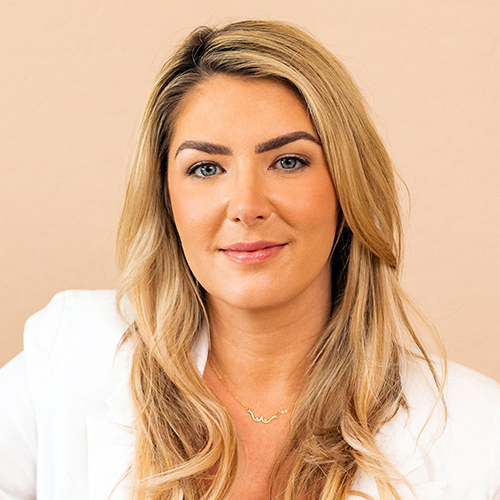

Jacqueline Kincer is the founder of Holistic Lactation where she runs a busy practice, manufacturers herbal supplements for lactation, and supports breastfeeding families worldwide. She's also the host of the podcast Breastfeeding Talk: Milk. Mindset. Motherhood. and creator of the online breastfeeding community, The Nurture Collective. Jacqueline's passion has been to create functional breastfeeding outcomes and expand access to lactation knowledge across the globe.
Topic: Inside the Infant Mouth: Oral Assessment & Function - [View Abstract]
Topic: Tongue Tied Untied: Creating Functional Breastfeeding Outcomes - [View Abstract]
In this presentation, Jacqueline demonstrates how tongue tie affects proper breastfeeding, specifically the mechanics of breastfeeding such as oral grasp, tongue extension, pressure generation, and more. You'll learn how to know which problems are issues that can be corrected with targeted oral exercises, or if bodywork is needed instead. We will also cover the timeline of habilitation in the weeks following frenectomy.
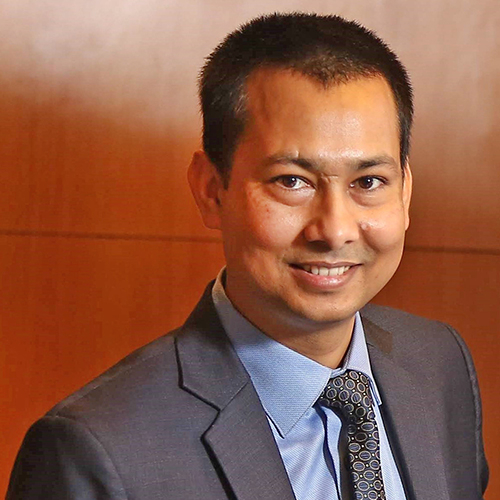
Tongue-Tie and the NICU: A Neonatologist Perspective

Dr. Ankur Bio Update - Dr. Kumar Ankur, MD, DNB is working as an Associate Director & Head of the Department of Neonatology at BLK MAX Super Speciality Hospital Delhi, India. He has been working in the field of neonatology with private and non-goverment organisations for improving neonatal healthcare in the country. He is the national faculty and trainer for FBNC (Facility based neonatal care), Neonatal Resuscitation, Kangarroo Mother Care (KMC) and the national assessor for Neonatology Fellowship accreditation programme of India. He has been invited as an expert speaker, faculty, chairpersons for various national and state level conferences and workshops. He has many publications in national & international journal and authored many chapters, guidelines published by Indian Academy of Pediatrics & National Neonatology of Forum Delhi & India. He is also the co-editor of Handbook of Neonatal Clinical Practices. He is also running training program in neonatal Fellowship for postgraduate students & neonatal nurses. Currently he is also the Secretary of prestigious National Neonatology Forum, Delhi. National Neonatology Forum (NNF) is a strong and large body of more than 8000 neonatologists across India and abroad. NNF has been actively involved in advocacy, policy making, research and ensuring quality health care to newborn for the last 4 decades. He had been past Secretary (2014) & President (2018) of Indian Academy of Pediatrics (IAP), Central Delhi Branch.
Topic: Tongue-Tie and the NICU: A Neonatologist Perspective - [View Abstract]
Tongue Tie is an interesting clinical subject with extreme variability in understanding among lactation consultants, neonatologists, pediatricians, speech therapists, pediatric surgeons, and dental/oral surgeons. There is still no consensus on diagnosis and mode of treatment. However, in recent years there seems to increase reliance on cutting the tie despite the lack of robust evidence. As clinicians, we should always give an unbiased approach towards any neonate's feeding-related problem. Holistic systems like simple bodywork and prolonged skin-to-skin contact, and family involvement can often resolve infant feeding issues. Family-centered care (FCC), based on collaborative participation of the family and a team of health care providers, is found to increase infants' well-being in neonatal critical care units. Our own postgraduate student did her dissertation To Determine the Prevalence of Lingual Frenulum in Infants ≥ 1800 grams of Birth Weight Affecting Breastfeeding (Submitted for Publication). We shall be sharing the Indian data and providing more information about the prevalence of tongue-tie in the NICU, how to distinguish between tongue-tie and other common feeding issues in neonates and the importance of holistic care.
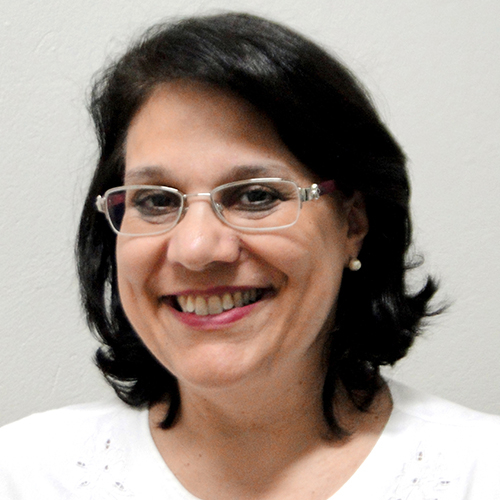
Tongue-tie Assessment Using the Lingual Frenulum Protocol for Infants

SALP expert in Orofacial Myology. PhD in Science USP - University of São Paulo. Chief of lingual frenulum evaluation sector at Santa Therezinha Hospital/ Brazil
Tongue movements are essential for milk extraction during breastfeeding. It is therefore very important that professionals are able to reliably identify anatomical variations in the lingual frenulum that may impact infant feeding. Learn more about how to use the Lingual Frenulum Assessment Protocol for Infants. This tool allows assessment of changes in the lingual frenulum and limitation of tongue movements, which can compromise the functions of sucking, swallowing, chewing, breathing and speaking.
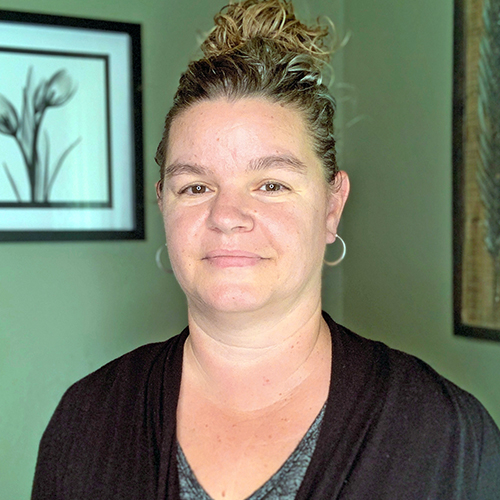
Tongue-Tied and Troubled: A Breastfeeding Journey at Risk

Christine Staricka is a Registered, International Board-Certified Lactation Consultant and trained childbirth educator. As the host of The Lactation Training Lab Podcast, her current role focuses on training and coaching current and aspiring lactation care providers. Christine created and developed The First 100 Hours© concept, an early lactation framework designed to support lactation care providers with the knowledge and mindset they need to help families optimize early lactation. Christine worked as a hospital-based IBCLC for 10 years and has over 20 years experience providing clinical lactation care and support. She provides clinical lactation care to families at Baby Café Bakersfield and serves as its Director. Christine recently completed 6 years of service on the Board of the United States Lactation Consultant Association (USLCA.) She holds a Bachelor's Degree from the University of Phoenix. She has been married for 27 years, lives in California, and is the proud mother of 3 amazing daughters.
Topic: Tongue-Tied and Troubled: A Breastfeeding Journey at Risk - [View Abstract]
Topic: Your Responsibility to the WHO Code: Evaluating Real-World Scenarios for Compliance - [View Abstract]
A suspected or diagnosed tongue-tie can throw a breastfeeding journey into immediate peril, with concerns over the baby's well-being most often discussed and debated. However, without an appropriate and intentional strategy for supporting the mother, the breastfeeding journey risks meeting an untimely, unplanned, and/or unsatisfactory end. The mental and emotional toll such a complex lactation situation can take on parents is wide-ranging in its effects, and it is critical to provide personalized and comprehensive counseling to restore a sense of empowerment and control to the mother as she makes continual decisions on how and whether to proceed with lactation and breastfeeding. Additionally, it is vital that indications of postpartum mood disorders are recognized and addressed as early as they appear. Lactation care providers can benefit from a clear framework for their fundamental responsibility to safeguard both the mother and child in a breastfeeding dyad. In this presentation we will explore ideas and themes that can guide the lactation care provider to ask the right questions at the right times in the specific context of tongue-tie so that they can offer effective counseling and care.
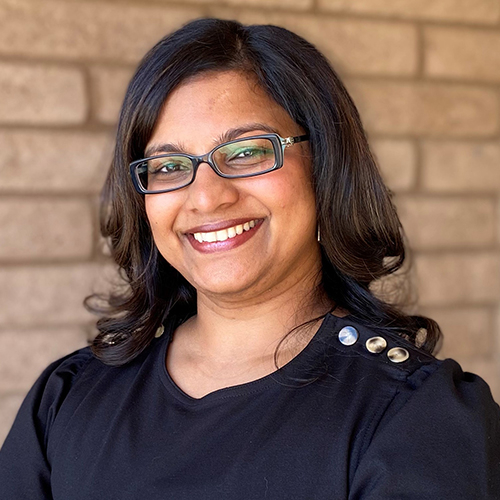
Trauma Informed and Family Centered Care! Keeping the Family Unit at the Center of a Tongue-Tie Treatment Model

Ramya Kumar is an ASHA certified Speech Language Pathologist specializing in infant and pediatric feeding disorders while practicing in a Level 3 NICU and outpatient settings in Phoenix, AZ. She is a Board Certified Specialist in Swallowing & Swallowing Disorders, Certified Neonatal Therapist, International Board Certified Lactation Consultant, Neonatal Touch & Massage Certified Therapist & has completed the Trauma Informed Professional Certificate. Ramya is an internationally sought out speaker & clinical mentor on the topic of neuroprotective care in the NICU, Pediatric Feeding Disorders and Tethered Oral Tissues. Ramya is passionate about helping families create mealtime success through a whole-body lens. More recently, Ramya has been serving as a NICU Developmental Coordinator championing changes in unit culture, system-wide policy development and supporting transition of NICU families to community based programs. She has also co-founded Arizona NICU Follow-Up Specialists, a community resource supporting NICU grads and their families as they transition from hospital to home.
Topic: Trauma Informed and Family Centered Care! Keeping the Family Unit at the Center of a Tongue-Tie Treatment Model - [View Abstract]
Research repeatedly tells us that families experience significant levels of stress, fear and fatigue when navigating challenges with feeding their infant. These experiences have a significant impact on their well-being, negatively affecting both physical and emotional health. Compound this with the need to navigate information and emotions that surround surgical intervention like tongue tie releases and the subsequent impact on their child’s comfort and pain as well as fear about success after a release is completed. Parental involvement in the care of their infant’s feeding plan is essential for protecting their identity roles, decreasing risk of depression and anxiety, and increasing parent confidence and competence in caring for their child (Obeidat,2009). Health professionals have a crucial role to play in understanding and implementing a trauma informed, family centered care model when planning the timing of a tongue tie release and supporting the family through the journey. This session will highlight the four core concepts of family centered care as well as tenets of trauma informed care and ways to utilize this during the various stages of a tongue tie evaluation. We will also cover strategies to minimize trauma recurrence and empowering parents and caregivers throughout the process.
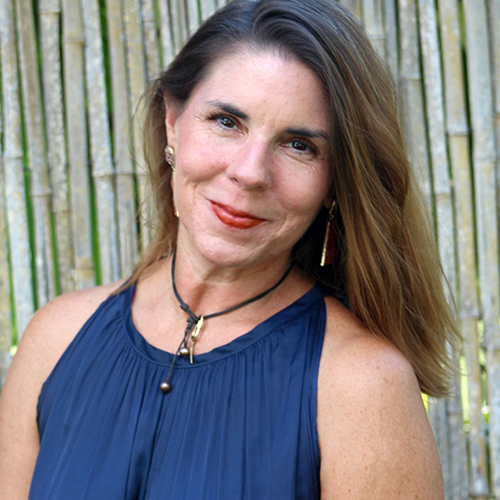
Trauma, Timing and Tenacity: Navigating Care When Frenectomy Doesn’t Help

Michale is an Integration visionary with a discerning view of the ancient and an eye on the future. She created one of the first on site integrated care clinics for Tongue Tie treatment 10 years ago that included Lactation support, Body nervous system and movement work, Laser tongue tie release and cranio-facial anticipatory growth guidance. She currently mentors Integrative practitioners in Wayfinding methods which allow practitioners to tap into their unique gifts and learn to incorporate them into practice.
The field of tongue-tie treatment is rapidly changing, and great strides have been made over the years to create sequencing of care to ensure predictable outcomes related to the achievement of optimal oral function after tongue-tie release. Despite this, there are times when a frenectomy does not seem to “work”, “help” or make a significant difference. This is frustrating for families and can leave health care professionals wondering what to do next. This presentation will discuss screening for trauma as a way to improve frenectomy success. Learn more about the impact of collective trauma on the infant’s nervous system and the importance of the timing of frenectomy along with the sequencing of pre, intra and post-op habilitative care to increase outcome success.
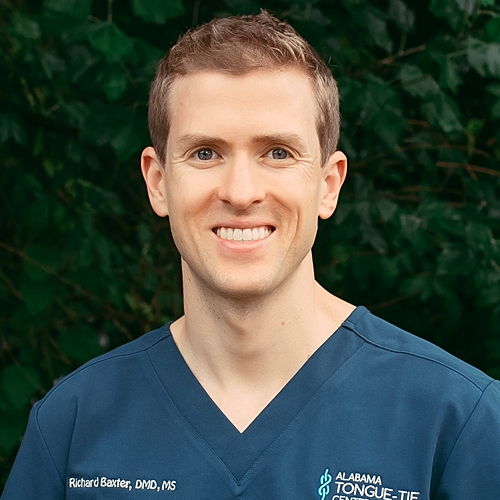
Treating Tongue-Tie From Birth Through Adolescence: The Far Reaching Impact of a Tiny String

Dr. Richard Baxter is a board-certified pediatric dentist and board-certified laser surgeon. He is a nationally recognized speaker on tongue-ties, and author of the bestselling book Tongue-Tied: How a Tiny String Under the Tongue Impacts Nursing, Speech, Feeding, and More. He is passionate about educating parents and healthcare practitioners about the effects a tongue-tie can have throughout the lifespan. He lives in Birmingham, AL with his wife, Tara, their five-year-old old girls, Hannah and Noelle, and infant Molly. He is the founder and owner of the Alabama Tongue-Tie Center where he uses the CO2 laser to release oral restrictions that are causing nursing, speech, dental, sleep and feeding issues. He had a tongue-tie himself, and all three of his girls were treated for tongue and lip-tie at birth, so for him, this field is a personal one. In his free time, he enjoys spending time with his family and outdoor activities. He serves as an elder at his church and is on the board of Reach the Rest, a global missions organization. Dr. Baxter also participates in many overseas dental mission trips. He is currently working on several research and educational projects related to tongue-ties.
Tongue-Tie certainly impacts breast and bottle-feeding, but also can have a significant impact on solid feeding, speech, breathing, and sleep. In this discussion, Dr. Baxter will share about the impact untreated ties can have on patients and their families, and how treating early in life can solve many of these issues. The presentation will highlight the role of the tongue in the essential functions of life. Many case studies of children who have struggled for years due to a tethered tongue and lip will be shared along with treatment videos, and parent testimonials.
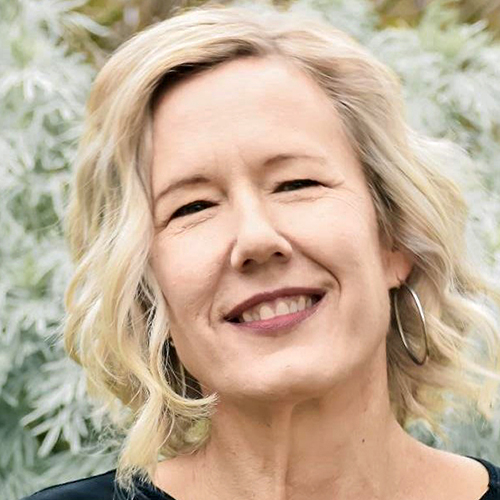
Tying It All Together- Consequences of Pathology and Ideal Collaboration

Dr. Gerner has been a Maternity and Pediatric Specialist in private practice for over 17 years with an additional focus on functional infant cranial work. She teaches other professionals to support breastfeeding across the USA and internationally. She is a wife, mother of 3 grown children, and lives in Northern CA with her husband and their 2 rescued dogs.
Topic: Introductions and Establishing the Value of Integration - [View Abstract]
Topic: Nitty Gritty Anatomy: The Cranium, Supporting Structure and the Muscle Layer - [View Abstract]
Topic: Tying It All Together- Consequences of Pathology and Ideal Collaboration - [View Abstract]
How does it all fit together- the cranium, the spine, the muscles, the cranial nerves and the dural system? In addition to their involvement in breastfeeding function, there can be serious long-term consequences to the child if pathology is not corrected. Learn why IBCLCs and other medical professionals recommend a collaborative approach to care for the very best outcomes. This presentation focuses on: (1) Sphenobasilar dysfunction and hydrocephaly; (2) neurological consequences of pathology and adaptation; (3) breastfeeding challenges from the LC scope correlated to structures; (3) tethered oral tissues- Importance of a collaborative approach; (4) best practice collaboration from the viewpoint of an IBCLC.











